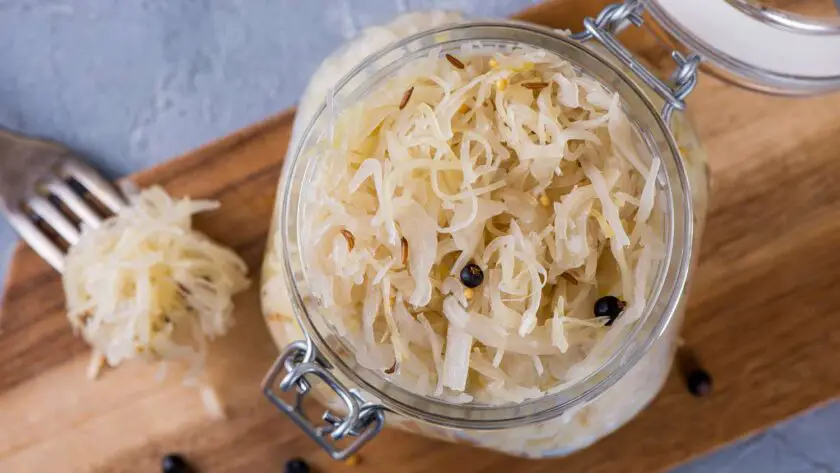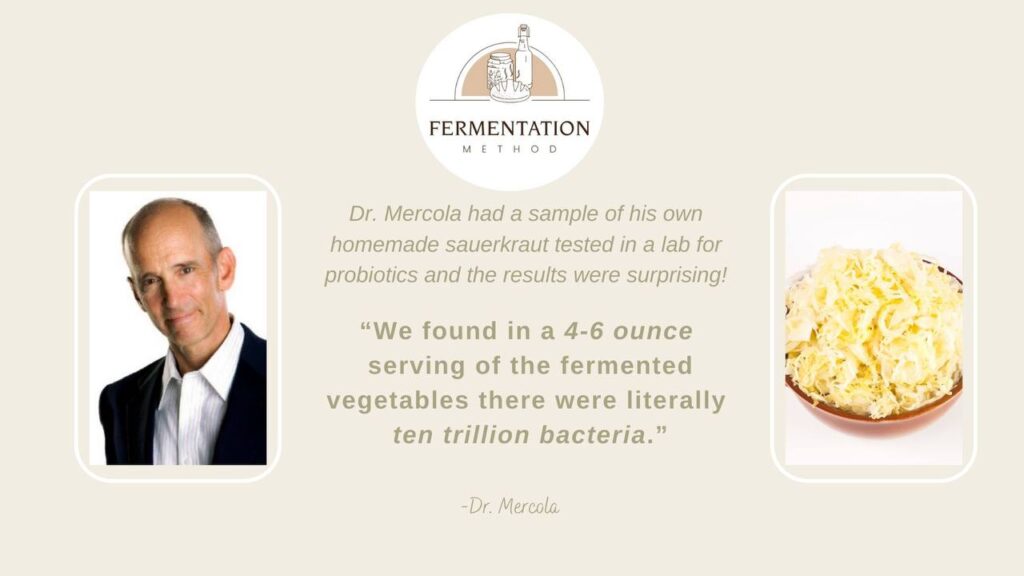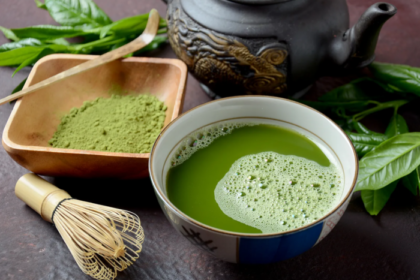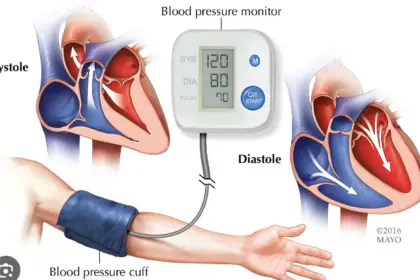As a health coach one of the main things I do with my clients is to help them clean up their supplement cabinet and get rid of crap. There are so many supplements that seem great but actually do nothing, or worse yet even harm the body. Supplements like melatonin aren’t worth taking, calcium too, and many more. Probiotics aren’t as bad but their marketing and advertising is deceptive because they make it seem like probiotic pills have plenty of probiotics in them when in reality they actually do not.
In fact, you could take a full bottle of probiotics, or two, or three.. no, make it 10 bottles of probiotics! Those ten bottles of probiotics still do not equal the amount of probiotics in one small four ounce serving of sauerkraut, believe it or not. How? I did the math.
Most probiotic supplements contain around 50 billion CFU’s of probiotics for the whole bottle. When Dr. Mercola sent four ounces of sauerkraut into the lab guess what he found. Those four ounces contained an incredible ten trillion bacteria. 10 bottles of these pills would only be 500 billion CFU’s of probiotics, which would be 50% of 1 trillion bacteria.
You’d still need 20x that to equate to just FOUR ounces of homemade sauerkraut. In other words, these probiotic capsules are about $50 for 50 billion CFU’s of probiotics. Now, multiply that by twenty bottles to get 1 trillion. Now take 20 bottles (1 Trillion CFU’s of probiotics) and times that by ten to get 10 trillion CFU’s of probiotics. You’d literally have to spend $10,000 on probiotic pills in order to equate what you get in just four ounces of homemade sauerkraut. Yep, you read that right.
How Much Does Sauerkraut Cost?
You can get 28 ounces of sauerkraut for about ten bucks. In other words, you could spend $10,000 on pills or $10 on food and you have to eat anyway, don’t you? This is simply another example of how supplements have taken over and have created a feeding frenzy but haven’t done anything for the gut health of the people that take them. If anything, very very very very minimal improvement.
What’s Even Crazier?
What’s even crazier than this? How could it get any crazier? Kimchi has more probiotics than sauerkraut. This is simply because there are more foods being fermented in kimchi. You have ginger, garlic, onions, peppers and more! All of these together cause more bacterial activity when fermenting and create an even higher concentration of probiotics as well as probiotic diversity (different strains) in the process.
Probiotic Supplements vs. Living Fermented Foods & Drinks
Probiotic supplements and fermented foods and drinks both contain live microorganisms that can benefit our gut health. However, there are some differences between the two.
Probiotic supplements are usually capsules or tablets containing specific strains of bacteria that have been freeze-dried or dehydrated to maintain their potency. These supplements are often marketed as a convenient way to boost gut health and support immune function. However, the quality and effectiveness of probiotic supplements can vary widely, and some studies have shown that they may not always survive the acidic environment of the stomach to reach the intestines alive.
Fermented foods and drinks, on the other hand, are made by allowing natural bacteria to ferment the food or drink over a period of time. This process can create a diverse array of beneficial bacteria and other microorganisms, including lactic acid bacteria, yeast, and other probiotics. Fermented foods and drinks can include things like yogurt, kefir, sauerkraut, kimchi, kombucha, and sourdough bread. Eating a variety of fermented foods and drinks can help to support a healthy gut microbiome and improve digestion.
Overall, while probiotic supplements can be a convenient option for those looking to boost their gut health, it’s important to remember that they may not always be as effective as fermented foods and drinks. Incorporating a variety of fermented foods and drinks into your diet can provide a range of beneficial bacteria and other microorganisms that can help to support a healthy gut and overall well-being.
The amount of probiotics you get with foods and drinks far exceeds any probiotic supplement on the market. Additionally, you’re getting fiber, vitamins, minerals, antioxidants and other beneficial medicinal and therapeutic compounds that not only benefit gut health but the health of your entire body.
Want To Ferment Your Own Food & Drinks?
Let’s face it, kombucha prices have risen dramatically. Fermented foods also. What if you could make them at home on your own for 10-20% of the cost of what you pay in the store? Imagine spending 20 cents to make your own kombucha instead of $4 every single time. Same with foods! Imagine if you could turn your kitchen into a probiotic factory. Now you can with the Fermentation Method. The Fermentation Method teaches you how to culture living probiotics in your kitchen in a variety of foods and drinks, with no limits! You can learn more about fermented foods and drinks and how to culture them in your kitchen to make something delicious and nutritious that the whole family will love at FermentationMethod.com
View this post on Instagram






